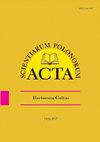酸枣ZjPYL8的功能特征:提高拟南芥气孔和根对ABA的敏感性
IF 0.7
4区 农林科学
Q4 HORTICULTURE
引用次数: 0
摘要
脱落酸(ABA)是一种植物激素,在调节植物生长、发育和适应胁迫方面起着至关重要的作用。Ziziphus jujuba Mill.本研究从酸枣中分离并鉴定了一种推定的 ABA 受体 ZjPYL8。为了研究 ZjPYL8 过表达对 ABA 响应途径的影响,我们将其导入拟南芥(A. thaliana)中,并考察了由此产生的表型。结果表明,在拟南芥中过表达 ZjPYL8 会导致气孔孔径和根长在 ABA 处理下显著减少,而野生型(WT)对 ABA 相对不敏感。此外,在盐处理条件下,ZjPYL8 转基因植株比 WT 表现出更短的根系。这些研究结果表明,ZjPYL8在A. thaliana中的过表达增强了植物的抗逆性,并支持了ZjPYL8在酸枣中作为一种推定的ABA受体的假设,这可能会提高植物对干旱和盐胁迫的适应性。ZjPYL8 似乎能介导植物对 ABA 的反应,这与 A. thaliana 中的大多数 ABA 受体相似,如气孔关闭和根长。本文章由计算机程序翻译,如有差异,请以英文原文为准。
Functional characterization of ZjPYL8 from sour jujube: enhancing the sensitivity of stomata and roots to ABA in Arabidopsis thaliana
Abscisic acid (ABA) is a plant hormone that plays a crucial role in regulating plant growth, development, and adaptation to stress. The growth of Ziziphus jujuba Mill. var. spinosa (Bunge) Hu ex H. Chou, commonly known as Suanzao in Chinese, is significantly influenced by environmental factors, particularly drought and salt stresses. In this study, we isolated and characterized a putative ABA receptor, ZjPYL8, from Sour jujube. To investigate the effects of ZjPYL8 overexpression on ABA-responsive pathways, we introduced it into Arabidopsis thaliana (A. thaliana) and examined the resulting phenotypes. Our results demonstrated that overexpression of ZjPYL8 in A. thaliana led to a significant reduction in stomatal aperture and root length under ABA treatment, while the wild type (WT) was relatively insensitive to ABA. Moreover, ZjPYL8 transgenic plants exhibited shorter roots under salt treatment than the WT did. These findings suggest that the overexpression of ZjPYL8 in A. thaliana enhances the plant's resistance to stress and support the hypothesis that ZjPYL8 serves as a putative ABA receptor in Sour jujube, which may improve the plant's adaptability to drought and salt stresses. ZjPYL8 appears to mediate plant responses to ABA, similar to most ABA receptors in A. thaliana, such as stomatal closure and root length.
求助全文
通过发布文献求助,成功后即可免费获取论文全文。
去求助
来源期刊
CiteScore
1.30
自引率
14.30%
发文量
61
审稿时长
4-8 weeks
期刊介绍:
In Acta Scientiarum Polonorum Hortorum Cultus we publish original research papers and review articles containing new and significant information on broad aspects of horticulture and related disciplines. The papers are published in English only, in six issues yearly.

 求助内容:
求助内容: 应助结果提醒方式:
应助结果提醒方式:


